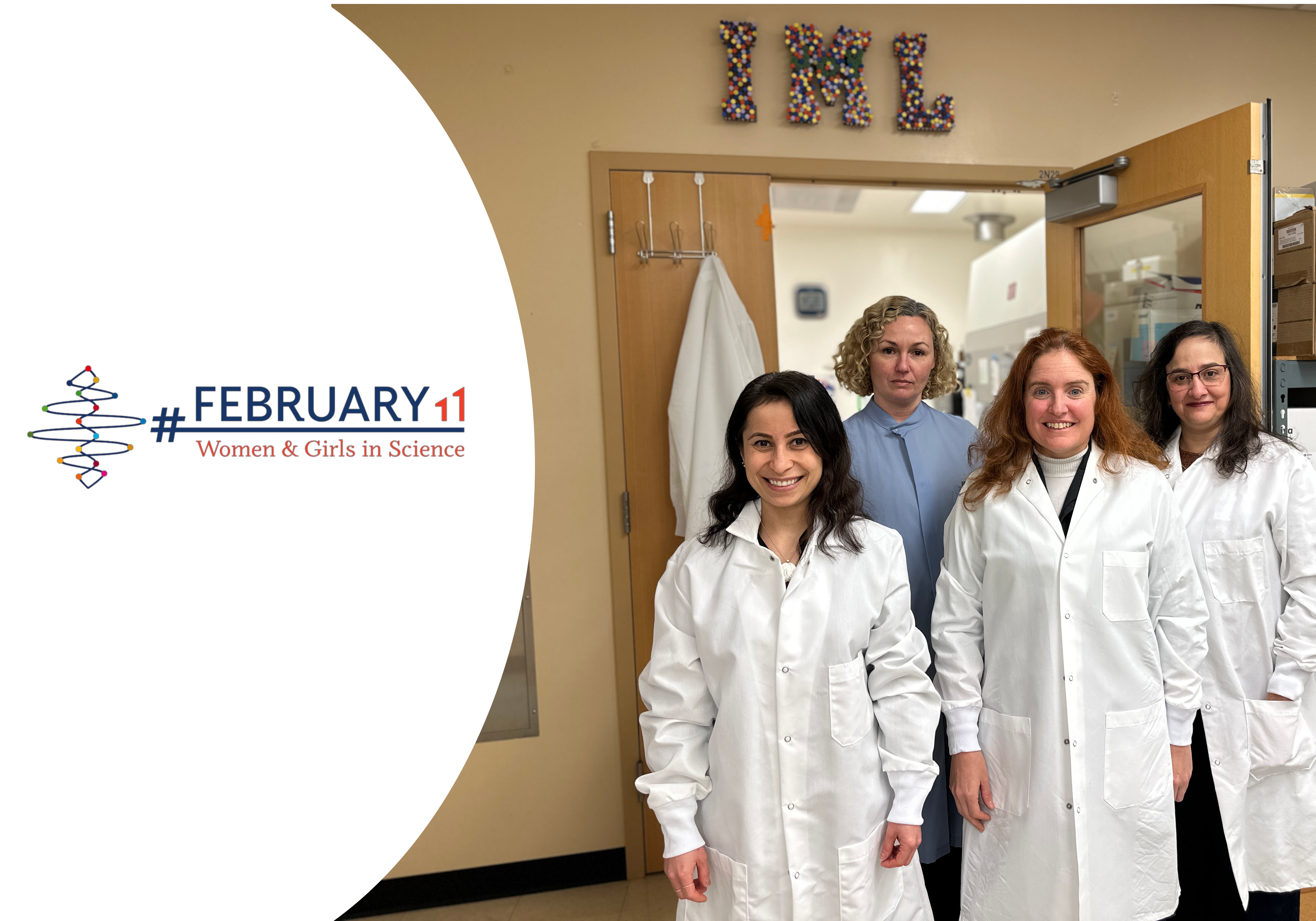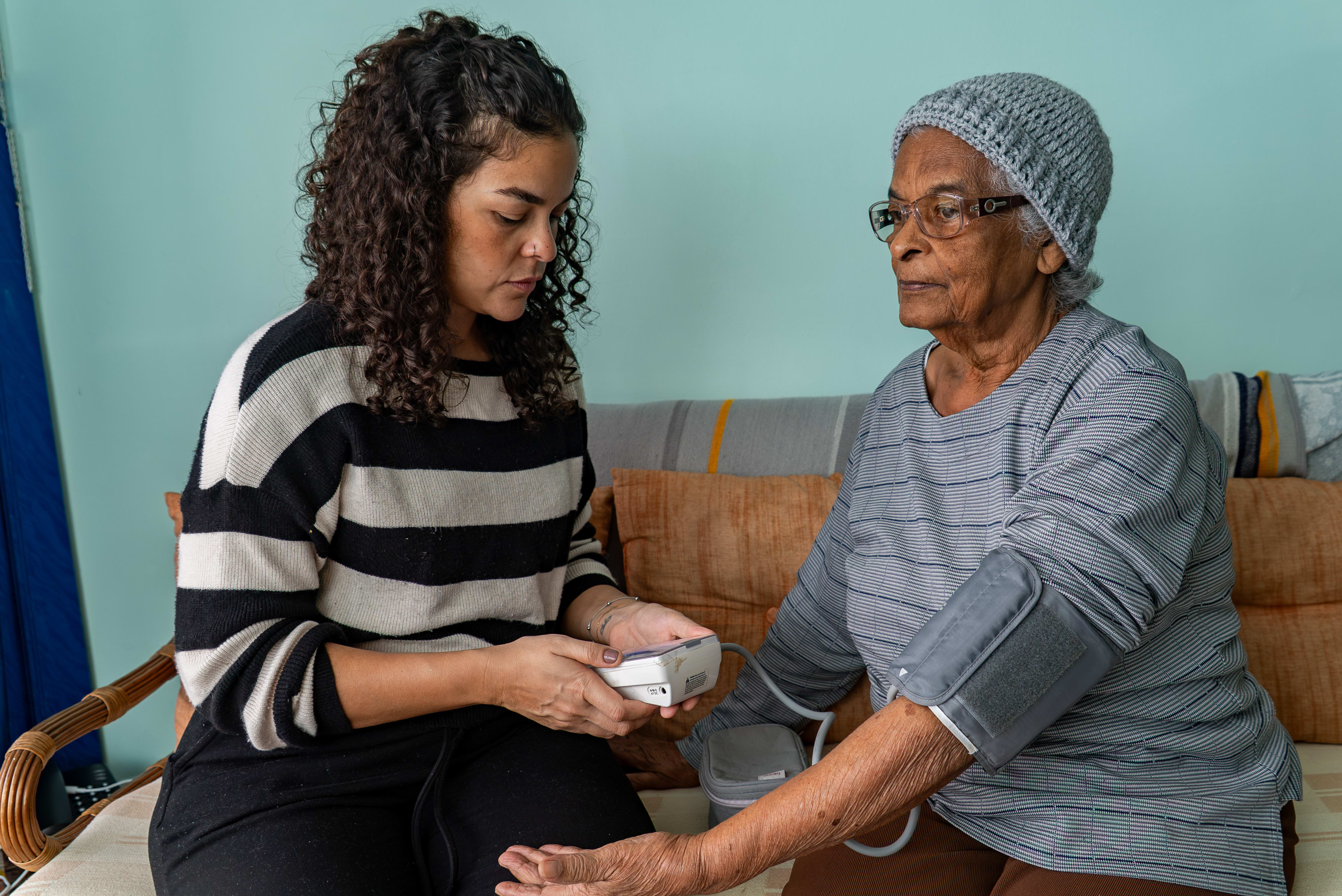
Colon Cancer Care
When you’re a patient at Providence, we don't just treat your colon cancer – we treat you. We use the most advanced treatments to create a highly personalized care plan. We also support you and your loved ones with a full range of services throughout your entire cancer journey. The result is effective, whole-person care for your body, mind and spirit.
Why Choose Us for Colon Cancer Care?
At Providence, we see the life in you. Together, let’s finish cancer – so you don’t have to miss any of life’s special moments.
About Colon Cancer
Colon cancer is a type of gastrointestinal cancer that forms in the inner lining of the large intestine. It is more common in older adults but can occur at any age. The expert oncology teams at Providence use the most effective therapies to treat patients with every type of colon cancer and its related conditions.
Testing and Diagnostics

Diagnostic tools help our cancer clinicians determine which therapies will work best for each patient, based on many factors such as cancer type and the genetic or molecular profile of the tumor. Your doctors will use multiple advanced diagnostic and prognostic tools to help design your individualized treatment plan. Depending on your case, this may include one or more of the following:
- Biopsy
- Endoscopy
- Endoscopic ultrasound
- Genetic testing and counseling
- Genomic tumor profiling (KRAS, NRAS, BRAF, HER2, NTRK, MMR, MSI)
- MRI (magnetic resonance imaging)
- PET/CT scan
- Ultrasound
Personalized Treatment for Colon Cancer
We take a team approach to your colon cancer treatment because we know this offers the best success in controlling and curing cancer. Your multidisciplinary cancer care team will work with you to design an individualized cancer care plan – from diagnosis to post-treatment support. We offer many different therapies across our Providence locations. Depending on your condition, your personal care plan may include one or more of the following:
Systemic therapies travel through the bloodstream and affect cells in other body parts. They are used for patients whose cancer has spread to other areas of the body or if there’s a high risk of spread. Sophisticated genetic analysis allows us to target therapies to specific DNA mutations that cause cancer cells to develop and grow. Systemic therapies include:
Chemotherapy is the systemic use of cytotoxic chemicals to kill cancer cells. Today there are many medications (e.g., biological medications, immune treatments, targeted therapies) that do not fit the classic definition of chemotherapy yet are often included in this category.
Clinical trials represent research protocols that include the use of new drugs or drug combinations in a specific clinical situation.
Immunotherapy uses drugs to allow the body’s own immune system to more effectively find and destroy cancer cells.
Molecularly targeted therapy is the use of drugs that are molecularly targeted at a genetic mutation that has allowed the cancer to grow. This therapy enables personalized treatments for patients who carry certain genetic mutations or abnormalities.
Surgical therapies involve an operation or procedure to remove cancer from the body. Surgery may be the main treatment for some invasive cancers, but it’s only one part of the entire treatment plan. Surgical therapies include:
Laparoscopic and open ablation refers to surgical procedures in which radiation, chemicals, or microwave or laser technologies are used to destroy cancer cells. The procedures may be done using a laparoscope inserted through a small incision, or in a traditional open manner.
Laparoscopic liver resection (partial, hemi and extended) is a surgical procedure in which up to half of the liver is removed through a laparoscope, leaving the remainder of the organ in place.
Metastasectomy/cytoreductive surgery is a surgical procedure to remove visible or accessible metastatic tumors in various parts of the body.
Robotic/laparoscopic low anterior resection is a procedure in which a portion of the rectum is removed; the colon is then attached to the remaining part of the rectum. This allows the patient to have bowel movements normally.
Robotic-assisted surgery allows for better and more controlled access, giving the surgeon a clear and magnified view of the surgical area. It allows them to use smaller instruments and move with greater precision in a minimally invasive fashion, all of which results in a less traumatic experience and quicker recovery for the patient.
This advanced procedure requires a sophisticated facility and equipment, along with highly specialized physicians. It is available at some Providence locations.
Robotic/laparoscopic partial colectomy is a surgery to remove the cancerous part of the colon. The two healthy ends of the colon are then attached to each other.
Robotic-assisted surgery allows for better and more controlled access, giving the surgeon a clear and magnified view of the surgical area. It allows them to use smaller instruments and move with greater precision in a minimally invasive fashion, all of which results in a less traumatic experience and quicker recovery for the patient.
This advanced procedure requires a sophisticated facility and equipment, along with highly specialized physicians. It is available at some Providence locations.
Robotic/laparoscopic total colectomy is a surgery to remove the entire colon.Robotic-assisted surgery allows for better and more controlled access, giving the surgeon a clear and magnified view of the surgical area. It allows them to use smaller instruments and move with greater precision in a minimally invasive fashion, all of which results in a less traumatic experience and quicker recovery for the patient.
This advanced procedure requires a sophisticated facility and equipment, along with highly specialized physicians. It is available at some Providence locations.
Radiation therapy uses high-energy radiation from a source like X-rays or photons to kill cancer cells or shrink tumors. It may be part of a treatment plan that also includes systemic therapies and/or surgery. Radiation is sometimes used to help ease a patient’s pain or discomfort. Radiation therapies include:
Intensity-modulated radiation therapy (IMRT) and volumetric-modulated arc therapy (VMAT) are advanced types of radiation therapies. IMRT uses advanced technology to manipulate the radiation beams to conform to the shape of a tumor. VMAT is a subtype of IMRT in which the machine actively delivers radiation beams while moving in an arc around the patient.
This method of radiation delivery offers next-generation capabilities. The arc-based therapy provided via VMAT delivers high doses of radiation to more focused areas, reducing side effects and the overall treatment time for the patient. This treatment is particularly effective at treating several types of cancer while at the same time reducing toxicity and harm to vital organs.
This procedure is one of several new ways to deliver radiation therapy. It requires a sophisticated facility and equipment, along with highly specialized physicians. It is available at some Providence locations.
Radiopharmaceuticals (Y-90) is a group of treatments delivered by a catheter and consisting of millions of microscopic, radioactive microspheres that are infused into the arteries that feed the tumor. Y-90 microspheres are delivered into the arteries and can be used to treat cancer that has spread, or metastasized, to the liver. These particles become embedded into the cancer cells and deliver the radiation directly to the cancer site. Two commonly used agents are Theraspheres and Sir Spheres.
The advantage of this treatment is that the radiation penetrates only a short distance, so the risk to the organ is very low while the dose the cancer experiences is very high.
This procedure is one of several new ways to deliver radiation therapy directly into the tumor site. It requires a sophisticated facility and equipment, along with highly specialized physicians. It is available at some Providence locations.
Stereotactic radiation (SABR/SBRT) is a group of treatments that includes stereotactic body radiation therapy (SBRT) and stereotactic ablative radiation (SABR) – both of which are adaptations of stereotactic radiosurgery (SRS) – for the treatment of targets in the body, but outside the brain. Similar to SRS, these techniques deliver very high doses of radiation using sophisticated motion management and patient immobilization techniques.
The number of radiation treatments is minimal and may range from one to five treatments delivered over one to two weeks.
This procedure is one of several new ways to deliver radiation therapy. It requires a sophisticated facility and equipment, along with highly specialized physicians. It is available at some Providence locations.
Surface-guided radiation therapy (SGRT/SIGRT) is an approach to radiation targeting that offers real-time beam guidance from face and body surface-recognition systems.
This treatment is particularly effective at treating several types of cancer while at the same time reducing toxicity and harm to vital organs, thus minimizing side effects.
This advanced procedure requires a sophisticated facility and equipment, along with highly specialized physicians. It is available at some Providence locations.
Three-dimensional conformal radiation therapy (3DCRT) is a radiation planning and treatment technique in which three-dimensional (3D) imaging enables improved targeting for radiation treatment. 3D planning with CT imaging makes radiation treatment much more conformal, or tailored to the target.
Additional therapies may also be part of the treatment plan for a small number of patients. These may include:
Chemoembolization is a treatment delivered by a catheter, in which chemotherapy is injected into the blood vessel supplying the tumor, thereby blocking blood supply to tumor.
This treatment can help control disease locally without requiring surgery. This local delivery of chemotherapy reduces the overall side effects the patient experiences, while delivering high doses of treatment directly to the tumor.
This advanced procedure requires a sophisticated facility and equipment, along with highly specialized physicians. It is available at some Providence locations.
Hyperthermic intraperitoneal chemoperfusion (HIPEC) is a complex treatment in which heated chemotherapy is delivered into the abdomen through catheters following extensive surgical removal (debulking) of a tumor in the abdomen.
Some cancers can spread diffusely throughout the abdomen. By combining surgery with the direct application of chemotherapy, this two-step procedure is highly effective at treating cancers that have spread beyond their organ of origin.
This advanced procedure requires a sophisticated facility and equipment, along with highly specialized physicians. It is available at some Providence locations.
You’ll be provided with supportive therapies to prevent or relieve symptoms and to keep you as comfortable as possible throughout the course of your treatment.
Ostomy care includes the management of the appliances that attach to an ostomy, and the care of the skin around it.
Find Colon Cancer Care Close to You
Accreditations
We are proud to see our dedication to our cancer patients recognized by some of the most well-respected programs and institutions in the United States. Several of our Providence locations have achieved the following accreditations:
- Accountable Care Organizations (ACO) Accreditation – National Committee for Quality Assurance (NCQA)
- American College of Radiology (ACR) Accreditation
- Accreditation Program for Excellence (APEx) – American Society of Radiation Oncology (ASTRO)
- Commission on Cancer (CoC) Accreditation – American College of Surgeons (ACS)
- Quality Oncology Practice Initiative (QOPI) Certification – American Society of Clinical Oncology (ASCO)
Meet the Team
At Providence, you'll have access to a vast network of dedicated and compassionate providers who offer personalized care by focusing on treatment, prevention and health education.

Find Clinical Trials
Are you looking for a clinical trial for yourself or for a patient? We’d love to help you find one!
Find Care
Expert Tips and Advice for Cancer




